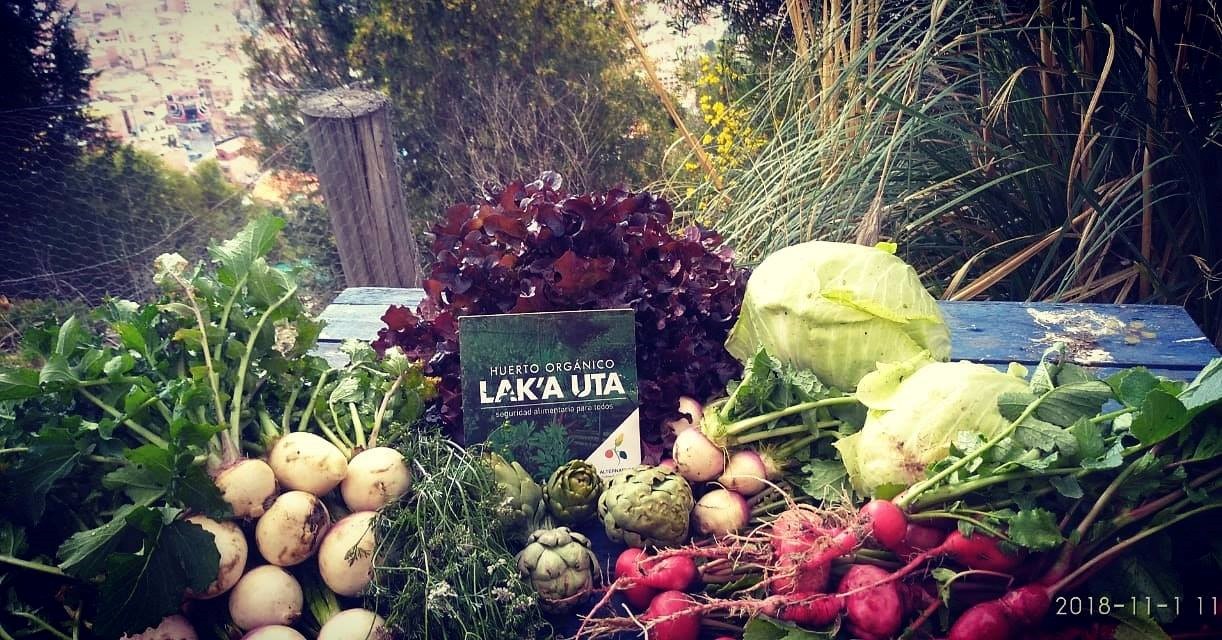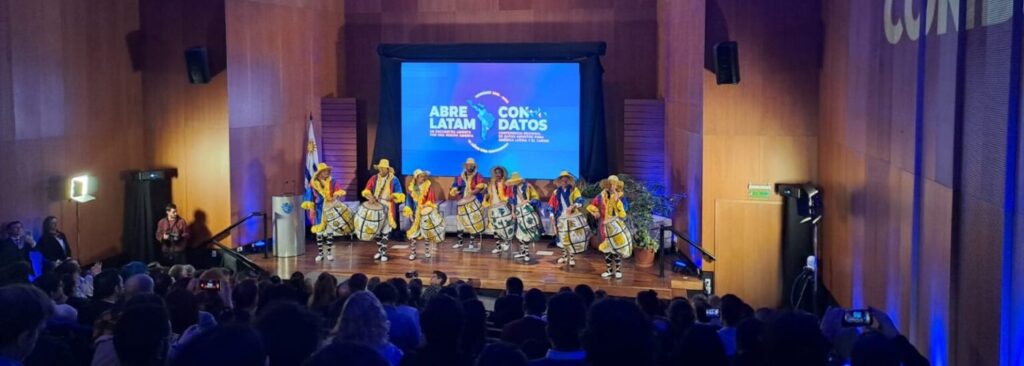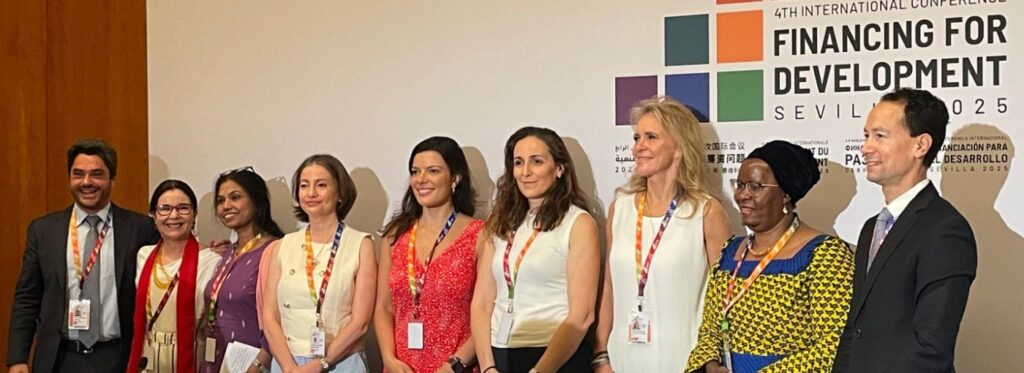In Bolivia, municipal, departmental and national authorities now have more information and knowledge today regarding the challenge of food insecurity than ever before. They understand the importance of promoting food security and actively incorporate it into development planning at the local and national levels. The food system and food-related issues are becoming pillars of public policy.
This achievement is due to the efforts of Hivos and IIED and Bolivian partner, Fundación Alternativas. Alternativas has held various meetings over the course of 2018 with those responsible for developing and structuring the future ‘Urban Agenda of the Plurinational State of Bolivia’. At the first meeting, a delegation from the CMSA-LPZ gave a presentation on the state of food security and recommendations for the ‘Urban Agenda for Food Security’ were made. In addition, the Vice Ministry of Housing and Urban Planning met with CMSA-LPZ to learn about the work and to request short and long-term proposals that promote food security at national level.
This evolving relationship with the government enables Hivos and Alternativas to influence national urban policies and to gain closer contact with authorities of the Plurinational State of Bolivia.
Celebrating community gardening
The work continues outside of the government buildings as well. On 15 May 2018 in the capital city of La Paz, Fundación Alternativas celebrated the 5th Anniversary of the community food garden, called Lak’a Uta, with an event that brought together approximately 70 people who practice urban agriculture in La Paz and El Alto. The showcasing of the garden and what opportunities it provides, allows other actors to promote activities and projects related to urban agriculture.
Alternativas invited different institutions and authorities of both municipalities to make way for the exchange of good practices. Among the participants were Fundación Comunidad y Axión and the Councilors Kathia Salazar and Cecilia Chacón. Other guests included the Municipal Secretary of Environmental Management, Mariana Daza, from the municipality of La Paz.
In her speech, Council Member Kathia Salazar confirmed the relevance of the community food garden for the La Paz families. She also highlighted the importance of “growing our own food,” and committed to supporting the proposal of a law for urban gardens in the municipality.
This alliance with Fundación Comunidad y Axión – a community foundation working urban agriculture as center point for change – contributes to Hivos’ outreach target of working in the city of El Alto with urban farmers with family and commercial focus. Moreover, the collaboration with municipal authorities and other institutions on food security enables the development of municipal regulations that promote urban agriculture and healthy eating, as specified in the Sustainable Diets for All Theory of Change.
Law and legitimacy
After visiting the Lak’a Uta garden, Councilwoman, Beatriz Álvarez, decided to lead the drafting of a law on urban agriculture. Fundación Alternativas designated a working group dedicated to working with CMSA-LPZ around the proposed law on urban agriculture.
In late 2018, the Municipal Law on the Promotion of Urban Food Gardens for the municipality of La Paz, was approved by the majority of the Municipal Council Members. This law was drafted with the support of the CMSA-LPZ (Municipal Committee of Food Security – La Paz) and Fundación Alternativas throughout 2018.
The work of Alternativas and CMSA-LPZ shows how authorities and civil society can achieve real policy change. In this way, the CMSA-LPZ has also gained legitimacy as an institution that is capable of generating trustworthy and relevant proposals.
From policy to practice – in education
By late 2018, more ministries were getting involved around the food agenda. On 18 September, the Post-Literacy Program (with the consent of the Ministry of Education of the Plurinational State of Bolivia) and Alternativas signed an inter-institutional agreement was signed to promote, develop and execute joint actions around training teachers on issues of food security, educational gardens and healthy eating.
This agreement underscores Fundación Alternativas’s closer relationship with the national education sector and the promise of strengthening professionals’ knowledge around food and healthy diets. The teacher trainings have a multiplier effect with the trickle down of knowledge to students, their parents and the wider communities.
As an example of what’s been achieved so far, Alternativas has been working with teachers and community educators on the development and preparation of a guide and other educational materials on food security, urban gardens and healthy eating. In 2018, the Calvert School, a private school in La Paz Bolivia, used the ‘Guide of Educational Activities’ to promote and disseminate teachings in their socio-productive projects. Convinced of its usefulness, the school has presented and explained this project to principals and teachers of 25 schools in the southern zone of the La Paz municipality. The promotion and dissemination of this guide and other educational units contributes to developing skills in issues related to food security, urban gardens and healthy eating in educational settings.
 Photo: Alternativas
Photo: AlternativasEvidence-based urban agriculture
With all of the developments around the critical topic of food in La Paz throughout 2018, at the end of the year, the General Coordinator of the Bolivian Platform for Action on Climate Change (PBACC), Christian Villarreal, met with Maria Teresa Nogales, Executive Director of Alternativas. He specifically requested support for research on the impact of urban and peri-urban agriculture in the municipalities of La Paz and El Alto.
Fundación Alternativas, with the support of Hivos, carried out the study exploring the ‘Experiences of Urban and Peri-urban Agriculture in El Alto and La Paz’. The research identifies good practices and lessons learned in the focus areas and provides information on the status of urban and peri-urban agriculture in two of the most populated municipalities in the country. Research on the subject generates greater evidence for the rest of the population. It has also motivated people to carry out complementary research to continue learning and deepening knowledge in this area of interest.
Proof it can be done
Hivos, IIED and their support to Fundación Alternativas has affected change from the local to the national levels and has gone beyond policy into the classrooms and in the public gardens. Through the Sustainable Diets for All program, Hivos and IIED have supported all of these actions and outcomes. As Maria Teresa Nogales calls it, Hivos plays an important ‘coaching’ role for Alternativas. It is constant capacity development through daily calls, meetings with the Alternativas´ team, revision of advocacy and communications texts, networking and others. Hivos has also held a couple of workshops and supported capacity development on lobby and advocacy and monitoring and evaluation, among other topics. However, the ongoing follow-up and feedback from Hivos-IIED is what makes the relationship with Alternativas a mutual learning and growing experience.
 Photo: Alternativas
Photo: AlternativasAltogether, this story of accomplishments in 2018 demonstrates just how much can happen at the policy and the community levels, even in a metropolitan area like La Paz, Bolivia. The recognition that food security and healthy diets are critical to a better lifestyle is taking root, and there is promise for much more change to come in the near future.








